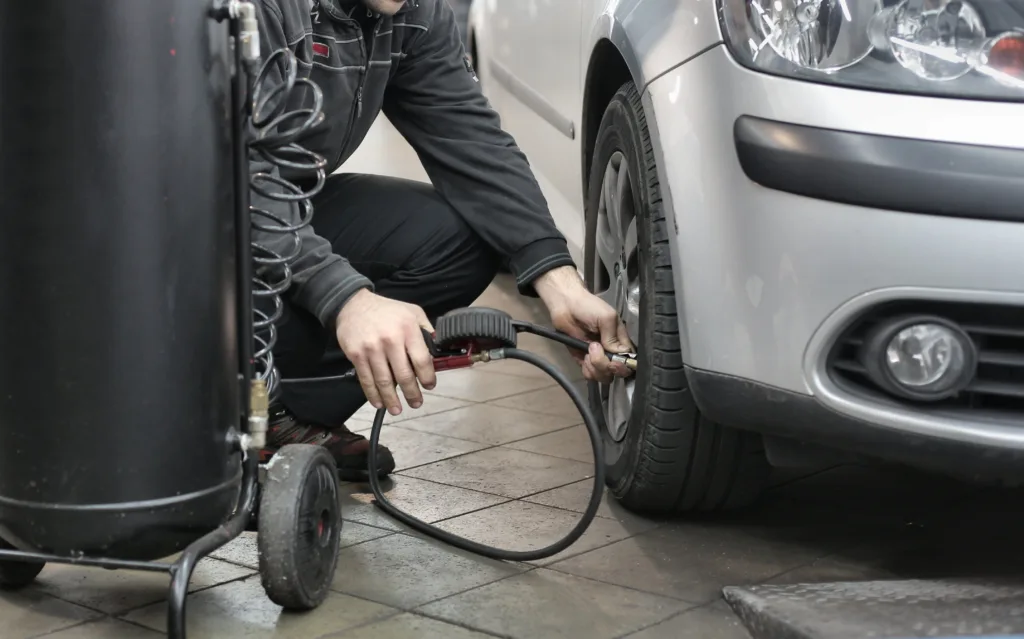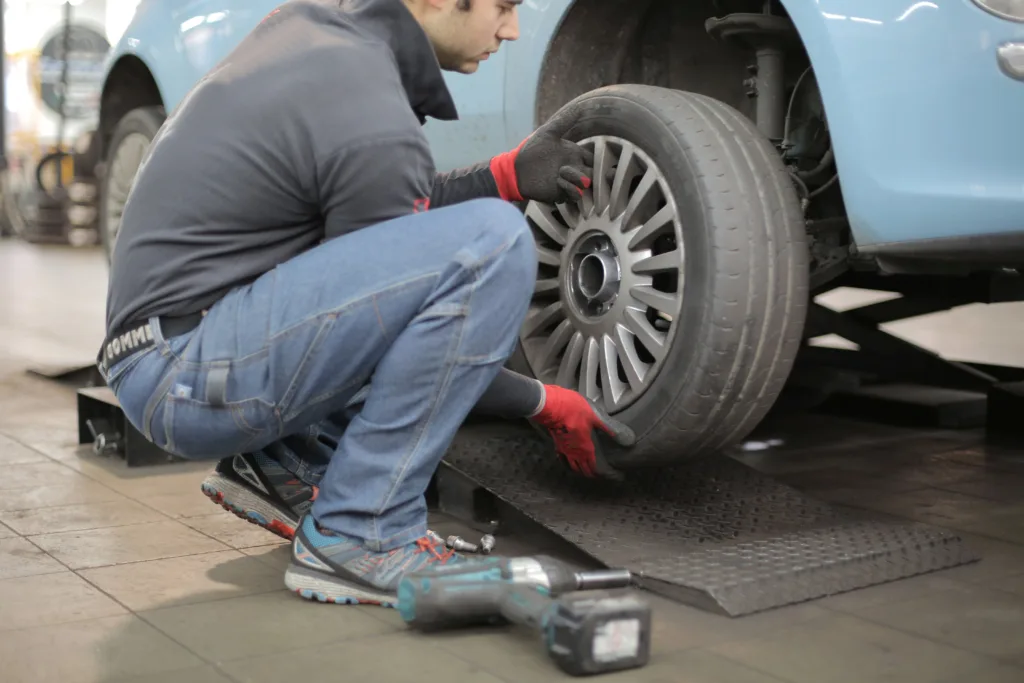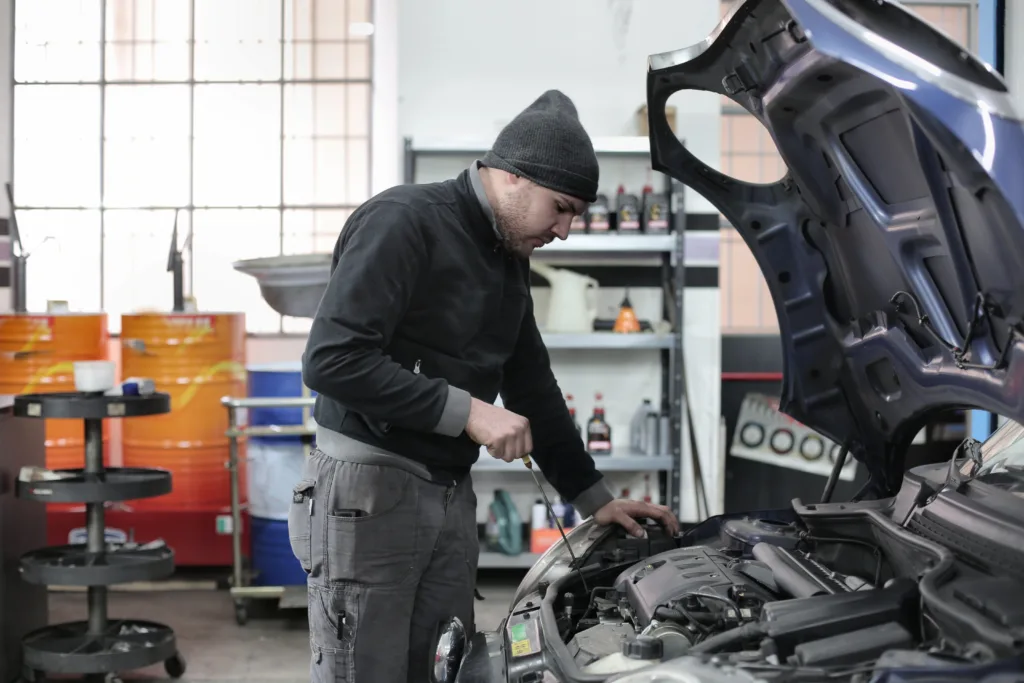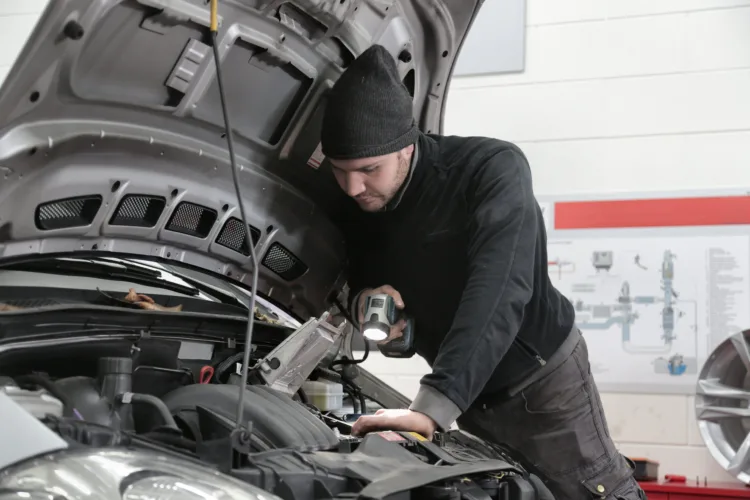Keeping your car in good condition requires consistent maintenance. Maintaining your car regularly helps it last longer and prevents sudden breakdowns or costly repairs. This blog provides helpful tips for taking care of your car. It’s important to keep up with routine maintenance, read the owner’s manual, and monitor the battery. By following these car maintenance tips, you can ensure your car stays in great condition for a long time.
Understanding the Importance of Regular Car Maintenance
If you want to keep your car in top shape, you need to follow some proven car maintenance tips. Regular maintenance not only enhances safety and reliability but also prolongs the life of your vehicle, ultimately saving you money. Moreover, well-maintained vehicles have a higher resale value and are always in top shape for any road condition. By preventing costly repairs down the road, regular maintenance acts as a bonus.
Additionally, sticking to the vehicle manufacturer’s recommended maintenance schedule ensures that your car is checked for essential components such as oil filters, wiper blades, water pump, serpentine belt, new tires, and cabin air filters, keeping everything in top shape. So, if you want to keep your car running smoothly for years to come, make sure to follow these car maintenance tips.
The Role of Regular Maintenance in Car Longevity
Regular maintenance plays a crucial role in ensuring the longevity of your vehicle’s various moving parts, including the engine and transmission. It also extends the life of your tires, promoting safety and efficiency on the road. Proper maintenance not only preserves the exterior and paint job of your vehicle but also contributes to its overall resale value. By following regular car care tips, car owners can effectively maintain their vehicle’s value, a bonus in addition to promoting longevity.
How Regular Maintenance Affects Car Performance
Maintaining your vehicle through regular check-ups positively impacts its overall performance. By attending to the engine oil and filter, you optimize acceleration and maintain peak performance. Proactive care of the coolant system prevents overheating, while proper brake maintenance ensures safety on the road. Additionally, keeping the steering wheel and brake lights in top shape contributes to the overall smooth functioning of your vehicle. Regular maintenance is the key to a high-performing and safe car, providing peace of mind for every journey.
Here’s an article about Buying a Used Car Made Easy: Your Go-to Guide, check it out!

Comprehensive Vehicle Check-Up: Car Maintenance Tips
If you want to keep your vehicle in top shape, be sure to follow these proven car maintenance tips. Start by checking and maintaining proper tire pressure and rotation, which will help ensure even tread wear and contribute to improved grip and overall stability. Stay on top of your car’s fluids, including oil, coolant, and transmission fluid, to keep the cooling system functioning properly and optimize engine performance.
Always pay attention to your car’s warning lights, and address any issues promptly to prevent potential damage. Regularly check your car battery and terminals for optimal performance, and don’t forget to ensure that your air filter and washer fluid levels are up to par. By following these simple maintenance tips, you can help ensure the longevity of your vehicle and keep it running smoothly for years to come.
The Significance of Tire Pressure and Rotation
Maintaining proper tire pressure and regular rotation is key to maximizing tire lifespan. This not only enhances fuel efficiency but also improves overall tire performance. By promoting even tread wear, significantly enhances the vehicle’s handling and safety on the road. Additionally, regular tire rotation ensures that tires wear evenly, ultimately extending their longevity. Proper tire pressure also plays a crucial role in reducing the risk of tire blowouts and accidents, providing car owners with a bonus of enhanced safety and peace of mind.
Importance of Checking Your Car’s Fluids Regularly
Regularly checking your car’s fluids is crucial for maintaining optimal vehicle performance. By ensuring the transmission fluid is at the right level, you can enhance the transmission system’s efficiency. Consistent maintenance of brake fluid is equally important as it enhances the reliability of the braking system. Regular oil level checks are vital for the overall health of the engine. Additionally, maintaining the proper levels of power steering, coolant, and washer fluid is essential for the smooth functioning of various vehicle components. Ensuring the windshield wiper fluid is adequate also contributes to safe driving visibility.
What You Need to Know About Your Car’s Warning Lights
Understanding your vehicle’s warning lights is crucial for early issue detection and prevention, ensuring road safety and longevity. Timely action upon warning lights prevents potential system damage, eliminating the need for costly future repairs. Knowing the meaning of different warning lights ensures the vehicle’s roadworthiness, contributing to overall safety. Addressing warning lights promptly adds an extra layer of protection for your vehicle’s engine and other essential components, making it an invaluable practice for any car owner.
Check out an article about Know Your Car Value: A Comprehensive Guide.
The Vitality of Regular Oil Changes
Maintaining your car’s engine performance and longevity is key for a well-maintained vehicle. One of the most important car maintenance tips is to regularly change your oil. It’s essential to choose the right oil for your specific vehicle to ensure optimal engine health and the prevention of any contaminants.
Regular oil changes not only promote longevity and smooth performance but also contribute to your car’s efficiency, ensuring consistent acceleration and overall engine health. To enhance your car maintenance routine, it’s also important to understand NLP terms related to oil changes, such as oil filter, vehicle’s engine, and radiator, to maintain a positive and informative tone throughout your maintenance tips.

Choosing the Right Oil for Your Vehicle: Car Maintenace Tips
Opting for the correct oil grade maintains the cleanliness and reliability of the vehicle’s engine, contributing to its longevity and fuel efficiency. Using the manufacturer-recommended oil type ensures optimal engine performance, preventing premature wear and promoting overall engine health. Choosing the appropriate engine oil is essential for the long-term health of your vehicle, and it’s a bonus to regularly change the oil filter and check the oil level using the dipstick. Ensuring the right oil also prevents contaminants from accumulating on top of the battery.
The Impact of Oil Changes on Vehicle Health
Regular maintenance, including oil changes, plays a crucial role in promoting the longevity, reliability, and performance of a vehicle. Consistent oil changes are essential for preventing the engine from overheating and ensuring its long-term health. They also help in maintaining the engine oil’s viscosity, thus protecting the vehicle’s moving parts. Moreover, regular oil changes contribute significantly to the vehicle’s fuel efficiency and overall health, preventing engine wear and ensuring its longevity and value.
Getting Familiar with Your Vehicle’s Owner’s Manual
When it comes to taking care of your vehicle, following car maintenance tips is key to keeping it in top condition for years to come. Your vehicle’s owner’s manual is an excellent resource for learning about your car’s specific needs and maintenance timelines. By adhering to these guidelines and checking fluid levels, tire pressure, and scheduling routine maintenance, you can prevent unexpected breakdowns and extend the lifespan of your vehicle. By taking a proactive approach to car maintenance, you can have peace of mind on the road and enjoy a reliable and well-maintained vehicle.
Why Reading Your Owner’s Manual Matters
Your car’s owner’s manual contains invaluable information essential for proper vehicle maintenance, ensuring its longevity and performance. Following the manufacturer-recommended maintenance schedules detailed in the manual is crucial for preserving your car’s health. Moreover, understanding and adhering to the guidelines can positively impact your vehicle’s resale value. Regularly referencing your owner’s manual will keep you informed about your car’s specific maintenance requirements, ultimately saving you time, money, and stress by preventing unnecessary car issues.
Understanding Your Vehicle’s Unique Requirements
Understanding your vehicle’s distinct needs is essential for its long-term health. Tailoring maintenance to address specific requirements empowers car owners to make informed decisions, ensuring optimal performance. By acknowledging unique needs, potential issues can be addressed before they escalate, promoting the vehicle’s longevity. This proactive approach, in addition to regular maintenance, guarantees a well-maintained vehicle. Empower yourself with the knowledge of your vehicle’s individual needs and witness the bonus of a reliable and long-lasting car.
An article on How to Score the Best Car Deal: A Buyer’s Guide might interest you.

Importance of Scheduled Maintenance Services: Car Maintenance Tips
Maintaining your vehicle regularly is crucial to keep it running smoothly for years to come. Here are some car maintenance tips that you should follow to ensure optimal engine function and prevent costly repairs in the future. Firstly, stick to the manufacturer’s recommended maintenance schedule. Secondly, regularly check and change your vehicle’s oil, air filter, and spark plugs.
Thirdly, keep your tires properly inflated and aligned to improve fuel efficiency and prolong their lifespan. Additionally, wash your vehicle regularly to preserve the exterior and interior condition, and don’t forget to inspect your brakes and suspension system. Following these car maintenance tips will enhance the safety of your vehicle, protect you and your passengers, and maintain its value.
Decoding Your Car’s Service Schedule
Deciphering your vehicle’s service schedule is a bonus for any car owner, aiding in proactive maintenance and longevity. It outlines specific tasks like checking the oil filter, radiator, wiper blades, and water pump to ensure the vehicle’s engine stays healthy. Understanding and adhering to this schedule helps prevent unexpected breakdowns and costly repairs, and promotes optimal performance. It enables prioritization of critical tasks such as checking the serpentine belt, cabin air filter, and tire pressure, contributing to the overall well-being of your vehicle.
Risks Associated with Skipping Scheduled Services
Neglecting scheduled maintenance services accelerates vehicle deterioration, compromising longevity and safety. Skipped services lead to premature wear, reduced fuel efficiency, and voided warranties. This jeopardizes overall performance, potentially causing unexpected malfunctions. Additionally, it can result in costly out-of-pocket repairs and reduce long-term reliability. Regular maintenance is crucial for preserving the vehicle’s components and ensuring optimal performance. Ignoring scheduled services poses unwarranted risks, jeopardizing both the vehicle and the owner.
Keeping an Eye on Your Car Battery
To ensure a well-maintained vehicle, it’s important to implement these car maintenance tips, starting with regularly checking your car battery’s health. Proactively monitoring your battery helps prevent unexpected breakdowns and ensures smooth acceleration, ultimately contributing to the overall reliability of your vehicle. Maintaining the battery’s health by inspecting for corrosion, leaks, and other issues extends its life and reduces the risk of failure. By following these car maintenance tips and ensuring a healthy battery, you can increase the longevity of your vehicle and enjoy added reliability.
Identifying When It’s Time to Replace Your Car Battery
Recognizing symptoms of a failing car battery, like sluggish engine cranking and dashboard warning lights signals the need for replacement. Understanding your car battery’s typical lifespan helps anticipate when to replace it, ensuring vehicle reliability. Regular battery tests can pinpoint declining performance, signaling the need for a new one. Identifying a dying car battery through dim headlights and electrical issues calls for a prompt replacement. Proactively replacing the car battery at the end of its life cycle is essential for vehicle reliability.

Tips to Extend Your Car Battery Life
To extend your car battery life, make it a habit to regularly clean the battery terminals and ensure a secure connection. Avoid frequent short trips to prevent strain on the battery, and keep the terminals free from corrosion. When the vehicle is not in use for an extended period, use a battery tender to maintain its charge. Monitor the electrical system, including the alternator, to prevent excessive strain on the battery. Lastly, maintaining the appropriate fluid level and ensuring the battery’s top remains clean can significantly contribute to its longevity.
Here’s an article on Car Maintenance 101: Essential Tips and Tricks, check it out.
Understanding Your Vehicle’s Belts and Hoses
Maintaining your vehicle’s belts and hoses is one of the most important car maintenance tips to prevent unexpected breakdowns and engine damage. Regular maintenance ensures optimal engine performance and longevity. By knowing the typical lifespan of belts and hoses, you can be proactive in replacing them before they cause potential issues.
Proper care and maintenance are essential for the longevity, reliability, and safety of your vehicle. Well-maintained belts and hoses prevent engine overheating and other serious mechanical issues, ensuring a smooth and safe ride. Remember to add regular belt and hose checks to your car maintenance tips checklist for a well-maintained vehicle.
When to Consider Replacing Serpentine and Timing Belts
Addressing belt issues promptly can extend the life of your vehicle and minimize the risk of sudden failures. Regular belt inspection and replacement can prevent costly engine damage. Over time, belts can wear out, crack, or become brittle, leading to potential breakdowns. Timely replacement of serpentine and timing belts at the recommended intervals ensures the smooth functioning of the vehicle’s engine. It’s an essential aspect of proactive car maintenance that contributes to the longevity and reliability of your vehicle.
The Role of Hoses in Your Vehicle’s Functioning
Ensuring the proper functioning of your vehicle’s cooling system, hoses play a crucial role in maintaining optimal performance. Regular inspections are vital for identifying potential leaks, cracks, or bulges, contributing to efficient engine operation. Proper care of hoses ensures the integrity of the coolant system, preventing overheating and potential damage to your vehicle’s engine. By maintaining hoses in good condition, you significantly contribute to the longevity and reliability of your vehicle.
What to Keep in Your Car’s Emergency Toolkit: Car Maintenace Tips
When it comes to maintaining your car, it’s important to have a well-stocked emergency toolkit. Some car maintenance tips include keeping essential items like jumper cables, a flashlight, and a tire pressure gauge in your toolkit. Additionally, carrying basic tools such as screwdrivers, pliers, and a wrench can come in handy for minor repairs on the road. It’s also a good idea to include a first-aid kit, an emergency blanket, and water in case of unexpected situations.
To stay prepared, consider adding a portable phone charger and roadside assistance information to your toolkit. For added safety during roadside emergencies, be sure to include reflective warning triangles and road flares. By following these car maintenance tips, you can ensure that you’re always prepared for the unexpected.
Check out an article on The Pros and Cons of Buying Used Cars: What You Need to Know.
Essential Automotive Tools to Carry
Ensuring safe driving conditions, a tire pressure gauge enables regular monitoring and maintenance of tire pressure levels. Inflating tires when necessary, a portable air compressor can be a lifesaver. For jump-starting a dead battery without assistance, including a set of jumper cables in your vehicle is essential. Addressing minor car issues on the go is facilitated by carrying a basic tool kit with essential items. Supporting vehicle maintenance, having a windshield washer fluid refill and motor oil on hand is crucial.

Preparing for Unexpected Car Troubles
Preparing for unexpected car troubles begins with familiarizing yourself with your vehicle’s owner’s manual, which equips you with valuable troubleshooting information. Being aware of nearby repair shops and gas stations can aid in quickly resolving unexpected car troubles. Regularly checking the condition of your spare tire ensures readiness for unforeseen tire-related incidents. Additionally, maintaining a roadside emergency kit enhances your preparedness for unexpected car troubles, while staying updated on vehicle recalls and manufacturer notifications helps in addressing potential issues proactively. With these preparations in place, you can confidently handle unexpected car troubles.
The Art of Being Nice to Your Car
If you’re looking to keep your vehicle in great condition for years to come, there are some important car maintenance tips to keep in mind. First and foremost, be sure to stick to the manufacturer’s recommended maintenance schedule. Regular car washes and waxing can help keep your car looking like new, while also protecting the exterior paint from damage.
Proper tire care, such as checking and adjusting tire pressure and rotating tires regularly, can help extend their lifespan. Don’t forget about engine oil changes, which are crucial for optimal engine functioning. Keeping up with fluid levels, brake pads, and spark plug maintenance can also help ensure your vehicle stays in top shape. By following these car maintenance tips, you can keep your car running smoothly and avoid costly repairs down the road.
Simple Habits for a Healthier Car
To maintain a healthier car, it’s essential to prioritize regular air filter checks and replacements to optimize the vehicle’s engine efficiency and longevity. Additionally, keeping the exterior clean and well-maintained plays a crucial role in preserving the paint job and preventing rust.
Monitoring the dashboard for warning lights and promptly addressing them is vital for enhancing the overall longevity of the vehicle. Timely attention to brake lights, headlights, and windshield wipers ensures safe driving conditions, promoting a healthier car. Consistent fluid checks and top-ups further support the smooth functioning of the vehicle’s systems.
How Often Should You Clean Your Car and Why?
Regular car cleaning is essential for preserving its resale value and ensuring safe driving. Cleaning the exterior protects the paint, while interior cleaning prevents stains and maintains a pleasant environment. Consistent car care also extends the lifespan of various components. Ultimately, keeping your vehicle clean contributes to overall satisfaction and enjoyment.
Conclusion
Regular car maintenance is the key to a well-maintained vehicle. It not only ensures the longevity of your car but also enhances its performance on the road. From checking tire pressure and fluids regularly to understanding your car’s warning lights, every aspect of maintenance contributes to its overall health.
Regular oil changes, following the recommendations in your owner’s manual, and scheduling maintenance services are vital for keeping your car in top shape. Additionally, paying attention to your car battery, belts, and hoses, and having an emergency toolkit can save you from unexpected troubles on the road. Remember to be kind to your car by developing simple habits and maintaining cleanliness. Share these proven car maintenance tips with your friends on social media and help them keep their vehicles running smoothly.





